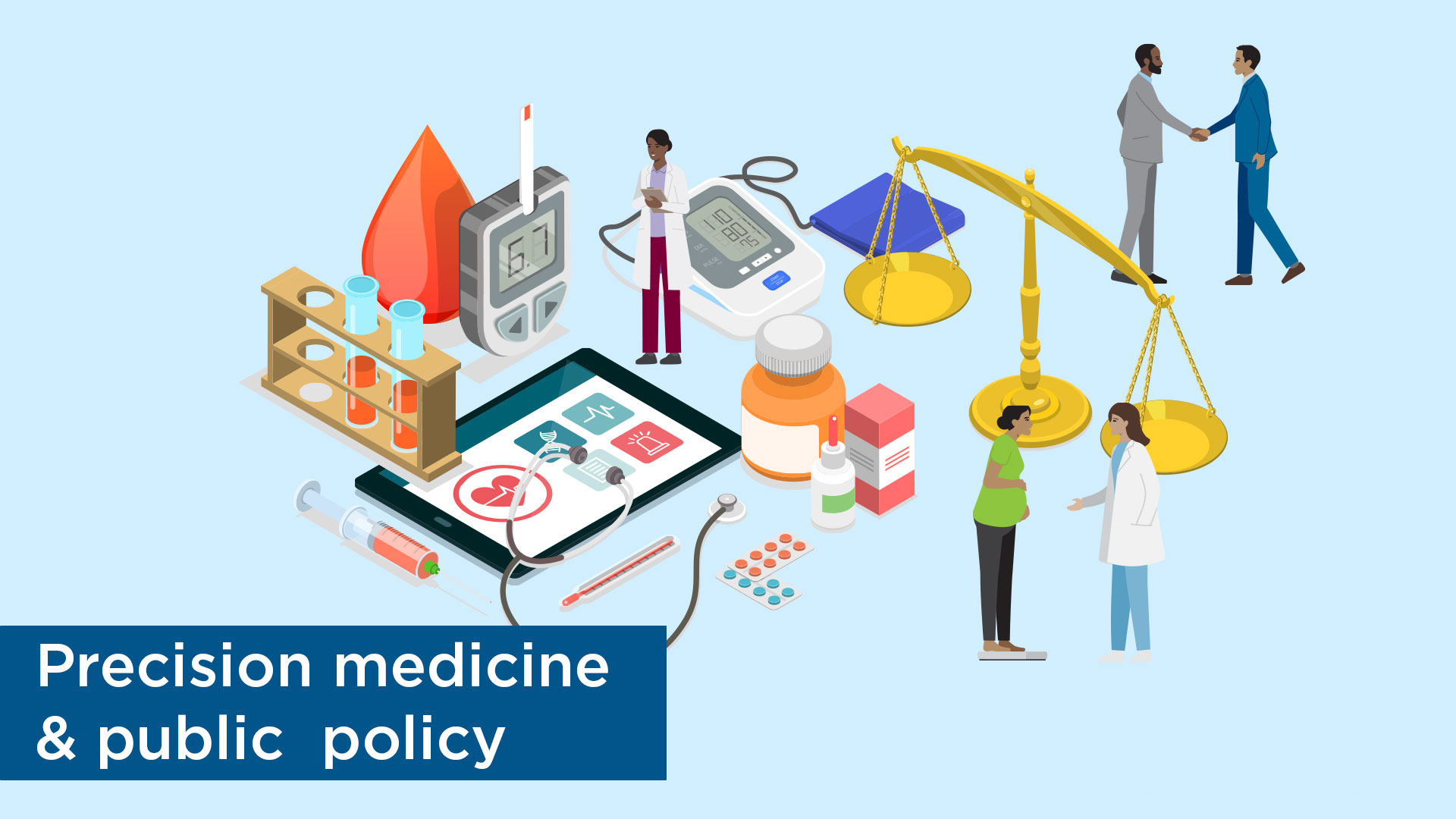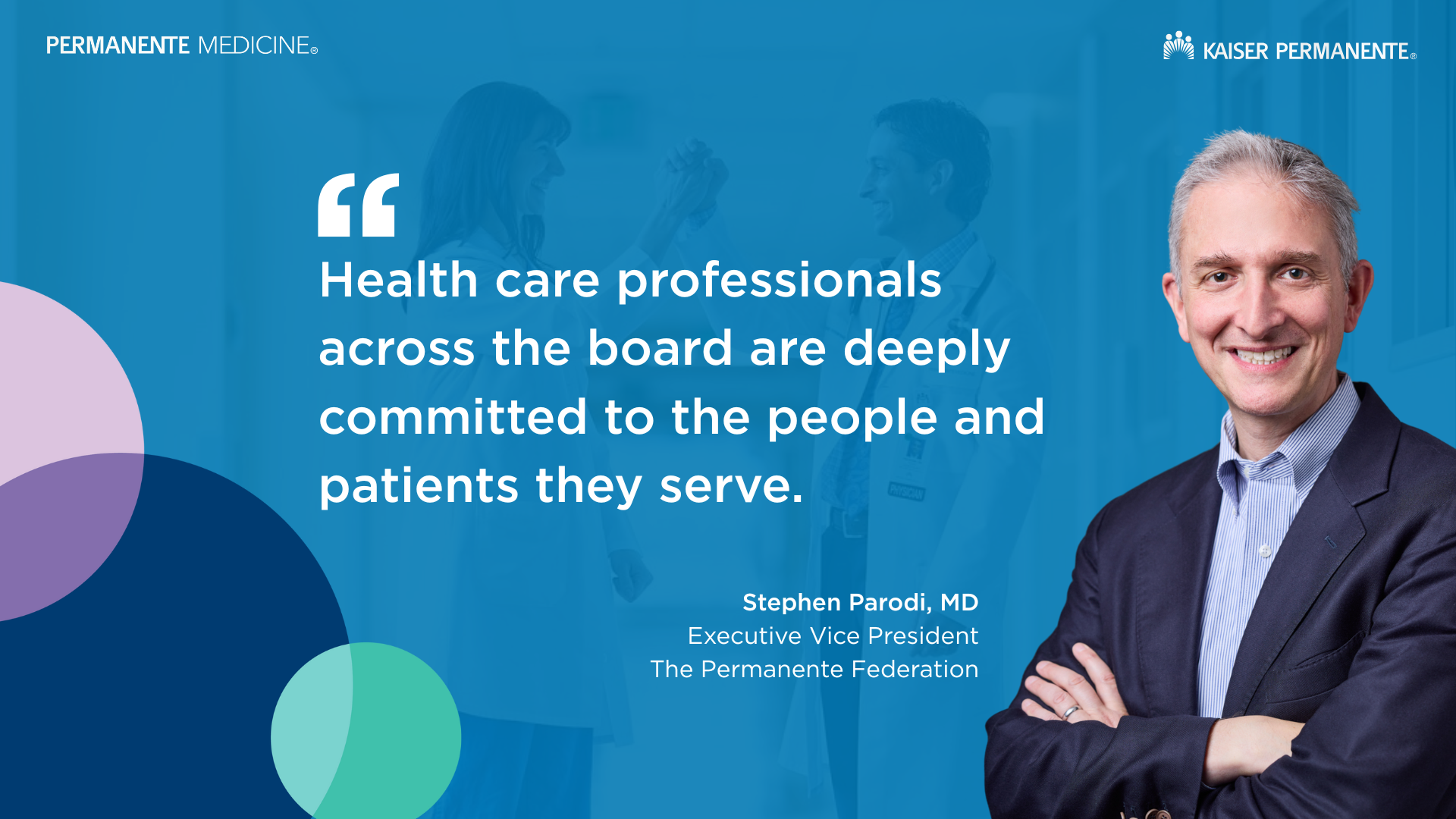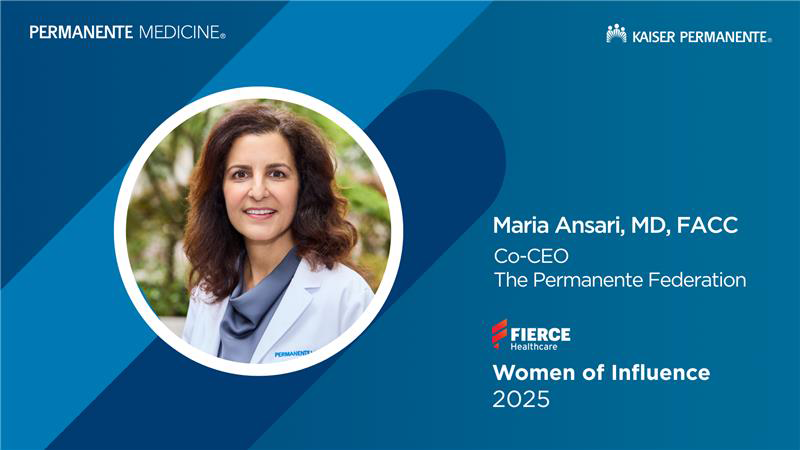Explore valuable lessons learned from Permanente physicians in 2025's rapidly changing health care landscape.

Precision medicine and physician advocacy: 4 ways doctors can influence public policy
Bruce Wollman, MD, FACR

Precision, or “individualized” medicine, combines a complex array of data that considers genetic, environmental, and lifestyle information to develop a customized care plan for patients. This technology is perfect for an integrated, value-based health care system like Kaiser Permanente, where silos are broken down through care coordination and quality of care is prioritized over fee-for-service quantity.
This January, the Mid-Atlantic Permanente Medical Group was privileged to host Congressman Jamie Raskin at the new Kaiser Permanente molecular lab in Rockville, Maryland. Congressman Raskin is a dedicated advocate of public health policy and has been open about his own battles with cancer.
Related precision medicine story: 4 ways genetic counseling helps physicians, patients evaluate health risks
Unlocking the power of physician advocacy
Meetings between health care professionals and elected officials like Congressman Raskin are valuable on two levels. First, they provide a platform for dialogue and education, enabling policymakers to understand the complexities and nuances of the latest health care delivery advancements. This includes identifying the exact genetics of an individual patient’s disease to selecting the appropriate treatment to maximizing positive outcomes. Second, these physician-legislator interactions ensure that the voices of clinicians are heard in the halls of government, informing laws and policies that affect our practice and our patients’ well-being.
That said, the responsibility to engage does not rest solely on the shoulders of physician leaders. We all have a role to play in this vital partnership between doctors and legislators. Here are 4 recommendations for doctors seeking to get involved in health care policymaking:
- Educate yourself and others. Stay informed about current health policies and legislative proposals. Attend workshops or seminars on health policy and share this knowledge with your colleagues.
- Build relationships. Establish and maintain connections with local, state, and federal elected officials. Offer your expertise as a resource for them on health-related issues.
- Host site visits. Invite policymakers to tour your facilities and witness the impact of health care innovations firsthand.
- Communicate effectively. Develop clear, concise messages to explain complex medical issues to non-experts. Personal stories and patient outcomes can be powerful tools in highlighting the importance of specific policies or practices.
The engagement between physician leaders and elected officials is a necessity in the evolving landscape of health care. Precision medicine, like artificial intelligence and care at home, are hot-button issues where policymakers are seeking answers from experts like us. Our partnership with policymakers ensures that the medical profession remains at the forefront of shaping health policy, ultimately leading to better patient outcomes and a more equitable health care system. Let us, as a community of physicians, commit to active involvement in the policymaking process, ensuring that our expertise and experiences contribute to the advancement of American health care.


